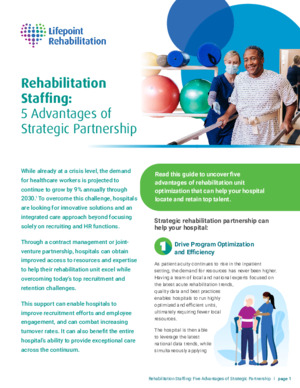The 20-Second Trick For Narconon Africa
Table of ContentsThe 9-Second Trick For Narconon Africa10 Simple Techniques For Narconon AfricaThe smart Trick of Narconon Africa That Nobody is DiscussingNarconon Africa - TruthsThe Definitive Guide for Narconon AfricaGetting The Narconon Africa To WorkThe 7-Second Trick For Narconon Africa
In a collection of documents with Manudeep Bhuller and Katrine V. Lken, we get rid of these data challenges and the nonrandomness of jail time, using new insights right into exactly how incarceration affects regression, employment, youngsters, and criminal networks - Drug-free life. Figure 1 Our work researches the effects of imprisonment in Norway, a setup with two crucial benefitsWe can further link this information to other family members, including kids and brother or sisters. In addition, we know on co-offending that enables us to map out criminal networks for observed criminal activities. Second, we can utilize the random project of criminal situations to courts that differ in their propensities to send out accuseds to prison.
However some judges send offenders to jail at a high rate, while others are more lenient. We gauge a court's stringency as the typical incarceration rate for all various other instances a judge deals with, after controlling for court and year set results, which is the degree of arbitrary task. This quasi-random task of court stringency can be used as an instrument for imprisonment, as it highly forecasts the judge's choice in the existing case, however is uncorrelated with various other instance features both deliberately and empirically.
The Definitive Guide for Narconon Africa
Features of prisoners, consisting of demographics and criminal offense categories, are extensively similar in Norway and various other countries, consisting of the United States, with the exemptions that the US murder rate is a lot higher, and race plays a bigger function there as well. What attracts attention as different, particularly contrasted with the USA, is the jail system.
Number 2In Norway, the average time spent in prison is a little over 6 months, which resembles most other Western European countries. This contrasts with typical United States jail time of almost 3 years, which remains in large component the factor the United States is an outlier in its incarceration rate compared to the remainder of the world [Number 1]
The smart Trick of Narconon Africa That Nobody is Talking About
This offers a lot more splitting up in between small and solidified bad guys than exists in the United States. There is no congestion in Norwegian jails and far better personal security, with each prisoner being appointed to their very own cell and a higher inmate-to-staff ratio than in the United States (http://go.bubbl.us/e2b209/7cb4?/New-Mind-Map). Prisons in Norway likewise provide well-funded education and learning, drug treatment, psychological wellness, and work training programs
Our research on the effects of incarceration on the wrongdoer, utilizing the arbitrary job of judges as an instrument, returns 3 key findings. Initially, jail time prevents better criminal actions. We locate that imprisonment decreases the probability that an individual will certainly reoffend within 5 years by 27 percent factors and minimizes the equivalent number of criminal charges per person by 10 costs.
The Buzz on Narconon Africa
We locate sizable declines in reoffending probabilities and collective charged criminal offenses even after offenders are released from jail. Our second outcome is that predisposition because of selection on unobservable specific attributes, if overlooked, brings about the wrong conclusion that time invested behind bars is criminogenic. If we just contrast criminal offenders sent out to jail versus those not imprisoned, we discover favorable organizations in between imprisonment and subsequent criminal activity.
This stands in contrast to our analysis based on the random assignment of courts, which locates an opposite-signed result. Third, the reduction in crime is driven by people who were not functioning prior to imprisonment. Amongst these individuals, jail time increases engagement in programs directed at boosting employability and reducing relapse, and this inevitably raises work and earnings while preventing criminal actions.

Imprisonment creates a 34 percentage point rise in participation in task training programs for the formerly nonemployed, and within five years their employment rate rises by 40 percent points. At the exact same time, the chance of reoffending within five years is cut by 46 percentage points, and there is a decrease of 22 in the average number of criminal fees.
The smart Trick of Narconon Africa That Nobody is Discussing
A possible description for the difference is that Norway's jail system varies considerably, both in regards to prison-term length and prison problems, from the US jail system. While comprehending the impacts of incarceration on the offender is an important very first step, capturing spillover impacts is additionally essential for examining criminal justice plan and developing effective prison systems.
Get This Report on Narconon Africa

Common the very least squares approximates reveal that children of incarcerated dads are 1 portion factor more probable to be learn the facts here now billed with a crime, about a mean of 13 percent, and reveal no impact on college grades. Utilizing our court stringency instrument, we discover no analytical proof that a papa's incarceration affects a kid's own criminal activity or school grades, but we are not able to eliminate modest-sized impacts.
Narconon Africa - The Facts
We specify criminal teams based upon network web links to prior criminal situations. Our evaluation returns 3 primary findings. First, when a criminal network participant is put behind bars, their peers' possibility of being billed with a future crime decreases by 51 percent points over the following 4 years. Having an older sibling incarcerated lowers the chance his younger bro will be billed with a criminal offense by 32 percentage factors over the following four years.